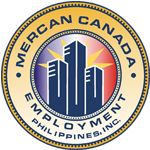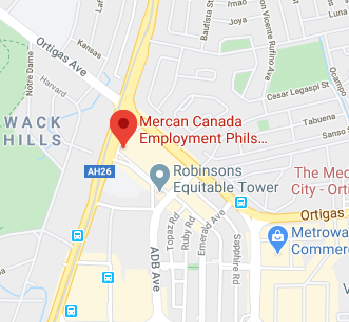Temporary residents: Super visa
Temporary residents: Super visa
The Minister of Immigration, Refugees and Citizenship and the Minister of Public Safety have issued ministerial instructions concerning the parents and grandparents multiple-entry temporary resident visa (TRV), also known as the super visa. The super visa provides a multiple-entry TRV to eligible applicants for up to 10 years, with periods of authorized stay for each individual entry extending for up to 5 years. These ministerial instructions were issued in accordance with the ministerial authority found in subsection 15(4) of the Immigration and Refugee Protection Act (IRPA) and take effect on July 4, 2022.
On this page
Eligibility criteria and documentation requirements
The super visa offers parents and grandparents the possibility of visiting Canada for up to 5 years on each entry to Canada. An applicant is eligible for a super visa if they meet the requirements for temporary residence in Canada as a visitor and provide the additional required documentation.
To be eligible for a super visa, applicants must provide the following:
- proof of their relationship to the child or grandchild (who must be a Canadian citizen or permanent resident), such as
- a copy of the child’s or grandchild’s birth certificate
- a copy of the child’s or grandchild’s baptismal certificate
- another official document naming the applicant as the parent or grandparent
- proof of an immigration medical examination and of being admissible to Canada on health grounds
- proof of private medical insurance from a Canadian insurance company valid for a minimum period of 1 year from the date of entry. The private medical insurance must
- be purchased from a Canadian insurance company
- be paid in full (quotes and payments in installments are not accepted)
- cover the applicant for health care, hospitalization and repatriation
- provide a minimum of $100,000 emergency coverage
- be valid for each entry to Canada and available for review by the border services officer (BSO) upon request
- a letter of invitation written and signed by the host child or grandchild that includes the following:
- a promise of financial support for the length of the applicant’s intended stay in Canada
- a list of all members of the household in Canada (including the visiting parent(s) or grandparent(s))
- a copy of the host child or grandchild’s Canadian citizenship or permanent resident document
- proof of financial support by the child or grandchild. This means that the child or grandchild who invites the applicant must prove that their household meets the low income cut-off (LICO)Â Footnote 1. The Canadian or permanent resident spouse or common-law partner of the host child or grandchild may co-sign the invitation letter to meet the LICO minimum. The following documents are examples of what the child or grandchild, including the co-signer, can use as proof of financial support:
- notice of assessment (NOA) for the most recent tax year Footnote 2
- T4 or T1 for the most recent tax year Footnote 2
- pay stubs
- Employment Insurance benefit statement, including:
- a letter from an accountant confirming the child’s or grandchild’s annual income, if they are self-employed, and/or
- proof of other sources of income (for example, pension statement, investments)
- an original letter from the employer stating
- job title
- job description
- salary
- bank statements
Processing applications
When assessing applications for a super visa, officers who are satisfied that the applicant meets the eligibility criteria listed above and is otherwise admissible to Canada should follow the procedures below.
Visa offices abroad
Visa-required foreign nationals: Officers should issue a multiple-entry TRV. The validity period should be the default (applicant’s passport validity less 1 day), up to a maximum duration of 10 years, unless there is a reason to have a shorter validity period.
- Global Case Management System (GCMS) counterfoil coding: PG-1
- Standard TRV fees apply.
- If an officer chooses to issue a visa for less than the full validity period of the passport (up to 10 years less 1 day), the reasons are to be entered in the case notes.
Visa-exempt foreign nationals: Applicants must submit the regular IMM 5257 visa application form, but are not required to pay the fee. If approving the application, officers should issue a letter of introduction (valid for 5 years or until passport expiry) and direct the client to apply for an electronic travel authorization (eTA).
Note: Because GCMS treats counterfoils as mandatory for any TRV file, the PG-1 counterfoil is to be generated with a validity of 5 years or until passport expiry (to match the letter of introduction), printed on plain paper and then destroyed. In GCMS, the counterfoil should remain “authorizedâ€, not cancelled.
- Fee exemption code: 999
If the officer is not satisfied that the eligibility criteria for the super visa are met and decides to refuse the application, they must enter in GCMS detailed reasons for the refusal, which should be related to the eligibility criteria stated in these instructions and the admissibility requirements of the IRPA.
In principle, an applicant who is refused a super visa can still apply for the V-1 TRV or an eTA if they meet the applicable legislative requirements.
Biometrics
Visa-required foreign nationals are required to submit their biometrics.
Visa-exempt foreign nationals who are applying for the super visa letter of introduction are not required to provide their biometrics before arrival in Canada.
Port of entry
The super visa offers parents and grandparents the possibility of visiting Canada for up to 5 years on each entry to Canada.
BSOs should verify that the super visa holder or the holder of a super visa letter of introduction has valid medical insurance, continues to meet the requirements of the super visa and is not inadmissible.
BSOs will then stamp the super visa holder’s passport, but no handwritten date is required. Should the BSO authorize a period of stay of less than 5 years, a visitor record must be issued to the client as per the instructions found in ENF 4, Section 13.24: When to document a temporary resident on a visitor record form.
Holders of a super visa counterfoil or letter of introduction who enter Canada using a primary inspection kiosk (PIK) will be automatically referred to a BSO to have their passport stamped.
In-Canada: Case processing centre (extensions)
All in-Canada visitor record, study permit and work permit applications must be submitted electronically, with some exceptions. See the list of programs that are exempt from the mandatory electronic application requirement.
Parents and grandparents who were admitted to Canada with a super visa counterfoil or super visa letter of introduction may apply to extend their temporary resident status in Canada beyond the initial period granted for their stay by submitting an electronic application using the Application to Change Conditions, Extend My Stay or Remain in Canada as a Visitor or Temporary Resident Permit Holder form [IMM 5708].
They must also
- pay the appropriate fee
- apply before their status expires
- have complied with the conditions that were imposed upon entry, including holding private medical insurance from a Canadian insurance company
Officers should refer to Eligibility for extending temporary resident status when reviewing an extension application.
Officers have the discretion to determine the length of an extension. If an application meets the necessary requirements, officers should consider the following when determining the length of the extension:
- the applicant’s means of support while in Canada
- whether the applicant has provided proof of current private health insurance from a Canadian company, and the duration of the policy
If super visa counterfoil or super visa letter of introduction holders provide proof of private Canadian medical insurance with their extension application, officers should consider issuing an extension that matches the length of the policy, up to a maximum of 2 years.
Officers must not grant extensions beyond the 6-month standard authorized stay if the super visa counterfoil or super visa letter of introduction holders do not provide proof of private Canadian medical insurance with their extension application. Officers must enter the reason for the specific length of the extension in GCMS notes and issue a visitor record for this duration.


